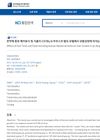TLDR Minoxidil and finasteride are FDA-approved treatments for male hair loss, but off-label use of oral minoxidil, dutasteride, and higher doses of finasteride and minoxidil is increasing.
Androgenetic alopecia (AGA) is the most common type of hair loss in men in the US, affecting 50% of men by age 50 and up to 90% of men in their lifetime. It can moderately impair health-related quality of life and is associated with low self-esteem and depression. Currently, the only US Food and Drug Administration-approved therapies for AGA are topical minoxidil, oral finasteride 1 mg, and low-level light therapy. However, due to the high prevalence of AGA and its associated outcomes, there is an increasing trend in the literature reporting off-label use of oral minoxidil, oral dutasteride, and higher doses of oral finasteride and topical minoxidil to expand therapeutic options for patients.
15 citations
,
July 2021 in “JAMA Dermatology” Androgenetic alopecia negatively affects quality of life and self-esteem, especially in women, but not depression.
 5 citations
,
January 2021 in “Journal of The American Academy of Dermatology”
5 citations
,
January 2021 in “Journal of The American Academy of Dermatology” Low-dose oral minoxidil is an effective and safe treatment for hair loss.
 40 citations
,
November 2020 in “JAMA Dermatology”
40 citations
,
November 2020 in “JAMA Dermatology” Finasteride may cause suicidal thoughts and mental side effects, especially in young people with hair loss.
 5 citations
,
November 2020 in “JAMA Dermatology”
5 citations
,
November 2020 in “JAMA Dermatology” Finasteride may cause side effects; more research needed.
 59 citations
,
July 2020 in “Journal of The American Academy of Dermatology”
59 citations
,
July 2020 in “Journal of The American Academy of Dermatology” Oral minoxidil promotes hair growth but may cause side effects; needs monitoring.
 19 citations
,
April 2020 in “Dermatologic Therapy”
19 citations
,
April 2020 in “Dermatologic Therapy” Dutasteride works better than finasteride for hair loss, with both being safe to use.
 53 citations
,
February 2020 in “Expert Opinion on Pharmacotherapy”
53 citations
,
February 2020 in “Expert Opinion on Pharmacotherapy” Finasteride and minoxidil work best together for hair loss.
 66 citations
,
June 2013 in “Journal of Dermatological Treatment”
66 citations
,
June 2013 in “Journal of Dermatological Treatment” Finasteride and dutasteride effectively treat hair loss, but may cause side effects like sexual dysfunction and depression.
 9 citations
,
July 2014 in “PubMed”
9 citations
,
July 2014 in “PubMed” The review doesn't clearly say if biotin, caffeine, melatonin, a marine extract, and zinc are effective for treating hair loss.
 2 citations
,
January 2011 in “The Korea Journal of Herbology”
2 citations
,
January 2011 in “The Korea Journal of Herbology” Korean medicinal herbs in hair tonic and food increased hair growth in mice.
 2 citations
,
May 1974 in “PubMed”
2 citations
,
May 1974 in “PubMed” The article described symptoms and treatments for four common hair problems but didn't give detailed information.











